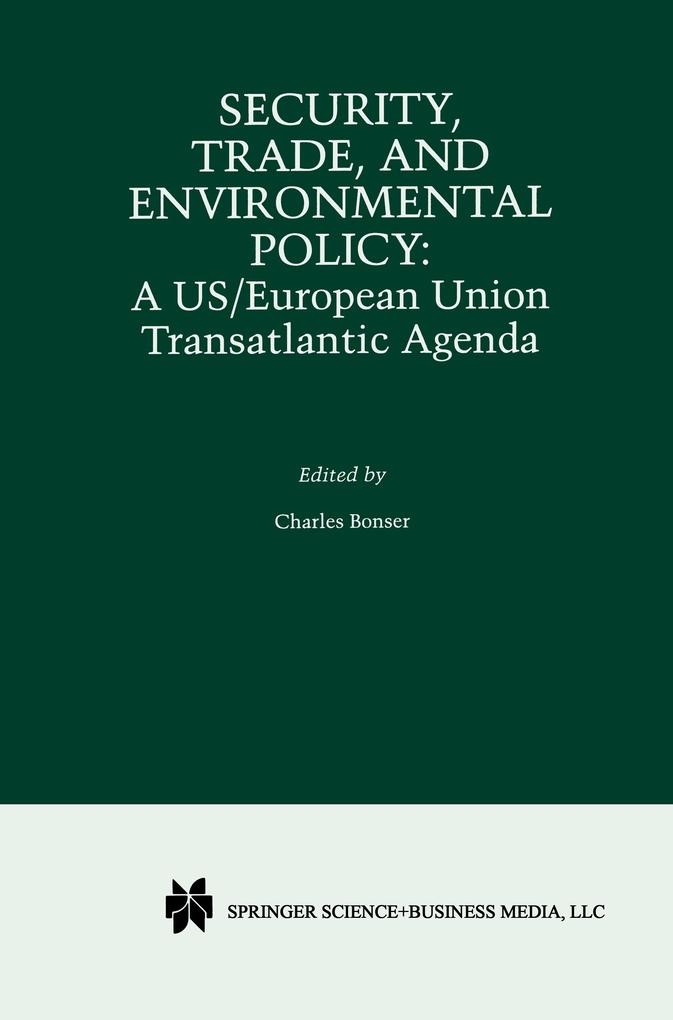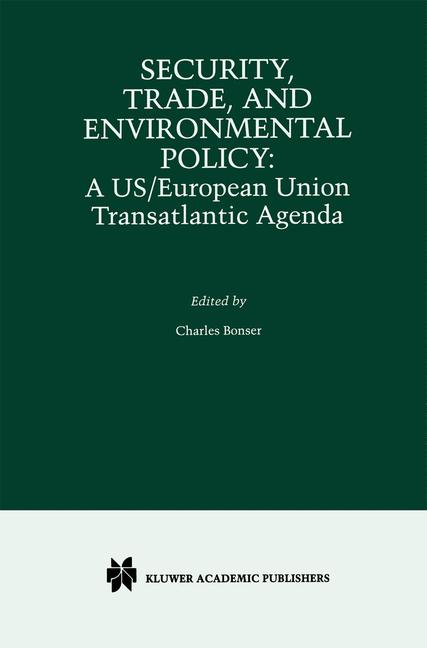
Zustellung: Mo, 30.12. - Do, 02.01.25
Versand in 2 Tagen
VersandkostenfreiBestellen & in Filiale abholen:
Center for European Integration, University of Bonn, Germany Instituto Nacional de Administradio, Lisbon, Portugal Fondazione Eni Enrico Mattei, Milan, Italy University Pompeu Fabra, Barcelona, Spain Danish School of Public Administration, Frederiksberg, Denmark Scuola Superiore della Pubblica Amministrazione, Rome, Italy The papers presented in this volume were originally presented at the Paris and Bloomington conferences. They were subsequently updated, where necessary, to include new information or circumstances. Plans call for future colloquia of the group to publish their results. For current information on the consortium being planned, visit the web page:. Charles F. Bonser Dean Emeritus School of Public and Environmental Affairs Indiana University Bloomington, Indiana U. S. A. SECTION I: INTERNATIONAL SECURITY ISSUES FOR THE EUROPEAN UNION AND THE UNITED STATES INTRODUCTION, SECTION I Charles F. Bonser Dean Emeritus of Public and Environmental Affairs Sclwol Indiana University Bloomington, Indiana It is clear that the collapse of the Soviet Empire at the beginning of this decade has led to what President Bush called, at that time, a "New World Order. " Although no one as yet has defined exactly what that means, it obviously includes the fact that the United States has emerged as the only true super power in the world, at least militarily. If there were any doubts to that fact, the events of the last decade removed them. In the 1991 Gulf War, the U. S.
Inhaltsverzeichnis
Section I: International Security Issues for the European Union and the United States.- U.S. /European Security Policy for the 21st Century.- Defining the New World Order.- The U.S./European Security Agenda in the New Millenium.- NATO in Transition.- The EU/WEU Role in European Security.- Challenges for Europe in the New Century: A German Perspective.- Dimensions of Change in the Post-Cold War World.- Non-Military Threats to the Alliance.- The Changing World Paradigm and the U.S./European Agenda.- Assumptions About the U.S., the EU, NATO, and their Impact on the Transatlantic Agenda.- Transatlantic Relations in the New Century.- Strengthening the Transatlantic Dialog.- Section II: The Next Generation of U.S./EU World Trade Policy.- The Future of World Politics of Commerce.- The Next Generation of World Trade Policy Development.- Objectives and Priorities of the EU in Transatlantic Relations.- Domestic and International Economic Policy Convergence.- The European Geo-Strategic Plan and the American Partnership.- Section III: Globalization and the Environment.- Globalization and Sustainable Development Toward a Transatlantic Agenda.- Globalization and the Environment: The Limits of the Law.- Jurisprudence in the GATT and the Environment Debate.- Voluntary Environmental Management Systems and Regulatory Relief.- Voluntary Environmental Management Systems in the French Context.- ISO 14001 : Real World Implementation and Status.- The Effectiveness of Instruments for Environmental Policies in the Industry: Regulating Packaging Waste.- Voluntary Approaches to Environmental Protection.- Companies Perception of Environmental Issues.- Pollution Havens and Industrial Flight: Weighing the Evidence.- Pollution Havens: A Korean Case Study.- A German Perspective on Globalization andPollution Havens.- Overcoming U.S./EU Obstacles to Trade/Environmental Cooperation.- U. S./European Environmental Cooperation.
Produktdetails
Erscheinungsdatum
12. Oktober 2012
Sprache
englisch
Auflage
Softcover reprint of the original 1st ed. 2000
Seitenanzahl
316
Herausgegeben von
Charles Bonser
Verlag/Hersteller
Produktart
kartoniert
Abbildungen
XIII, 296 p.
Gewicht
482 g
Größe (L/B/H)
235/155/18 mm
Sonstiges
Paperback
ISBN
9781461369790
Entdecken Sie mehr
Bewertungen
0 Bewertungen
Es wurden noch keine Bewertungen abgegeben. Schreiben Sie die erste Bewertung zu "Security, Trade, and Environmental Policy" und helfen Sie damit anderen bei der Kaufentscheidung.










